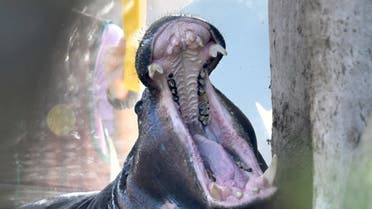Hippo teeth trade on the rise amid restrictions on ivory trade: Report
The trade of hippopotamus teeth is on the rise after an increase in restrictions on the ivory trade, the BBC said in a report on Tuesday.
For the latest headlines, follow our Google News channel online or via the app.
The UK last June announced an almost total ban on the trade of ivory found in elephant tusks but according to an animal welfare charity this led to an increase in the demand of ivory from hippos within a month after the near-total ban on elephant ivory was announced.

This is “deeply concerning evidence of increased demand for ivory from hippos, whose numbers in the wild are under threat” the report said, according to the BBC.
Like elephant ivory, hippo teeth and tusks are often used for decorative carvings but are usually cheaper and easier to obtain.
The population of hippos is declining, and according to a report by the International Union for Conservation of Nature the worldwide population of the hippo had fallen by 30 percent since 1994. Ten countries in West and Central Africa also reportedly say there has continued to be a sharp decline in numbers driven by poaching and land degradation.
There are two species of hippopotamus, the common river hippo and the smaller pygmy hippo. The hippo is one of the largest mammals on Earth. On average, males weigh 3,500 to 9,920 pounds and females weigh 3,000 pounds.
The name “hippopotamus” comes from Greek meaning “river horse,” although hippos are not actually related to horses.
Read more:
Mother punches mountain lion to save her five-year-old son
Woman tries to pry open mountain lion’s jaws to save her dog
